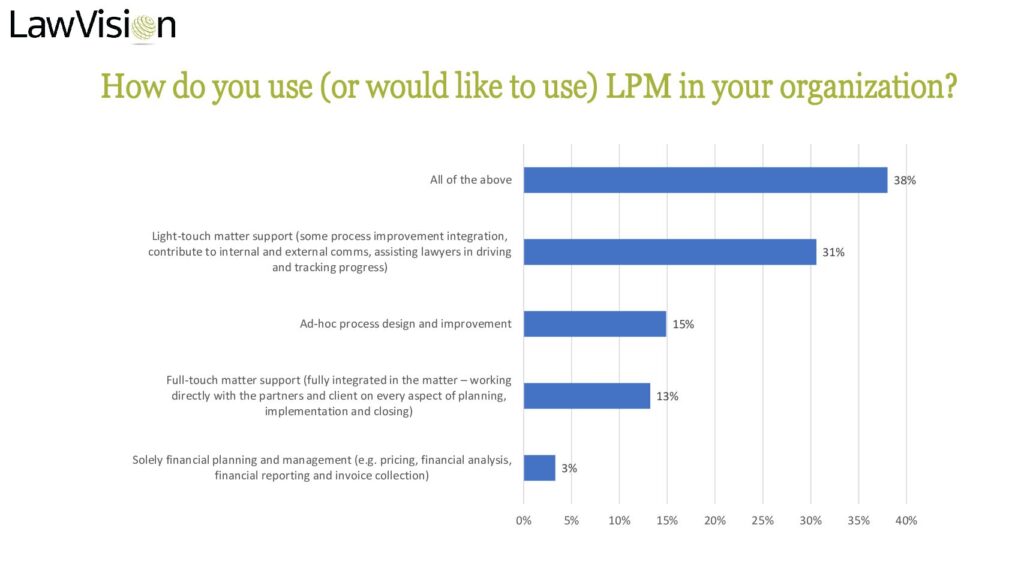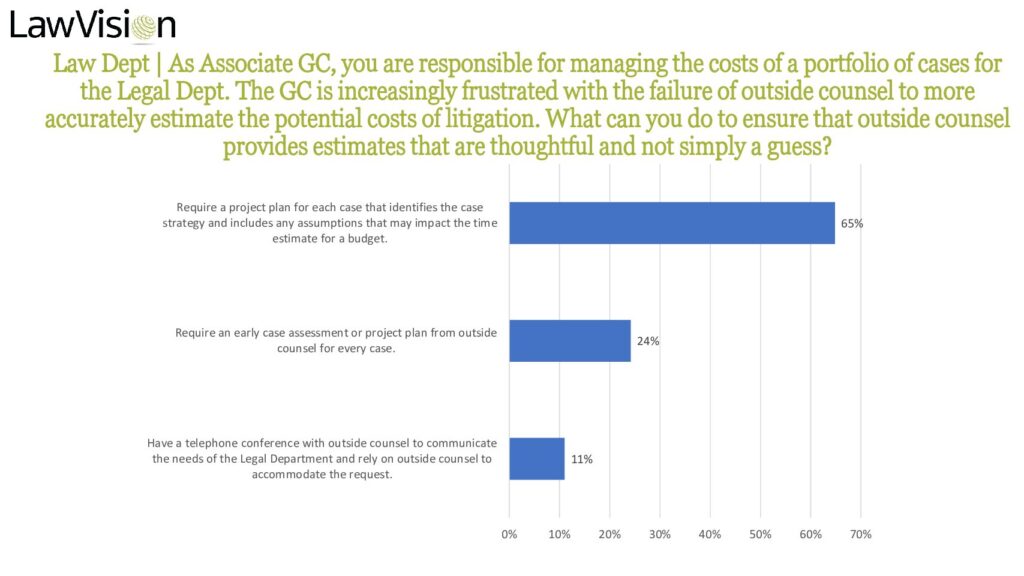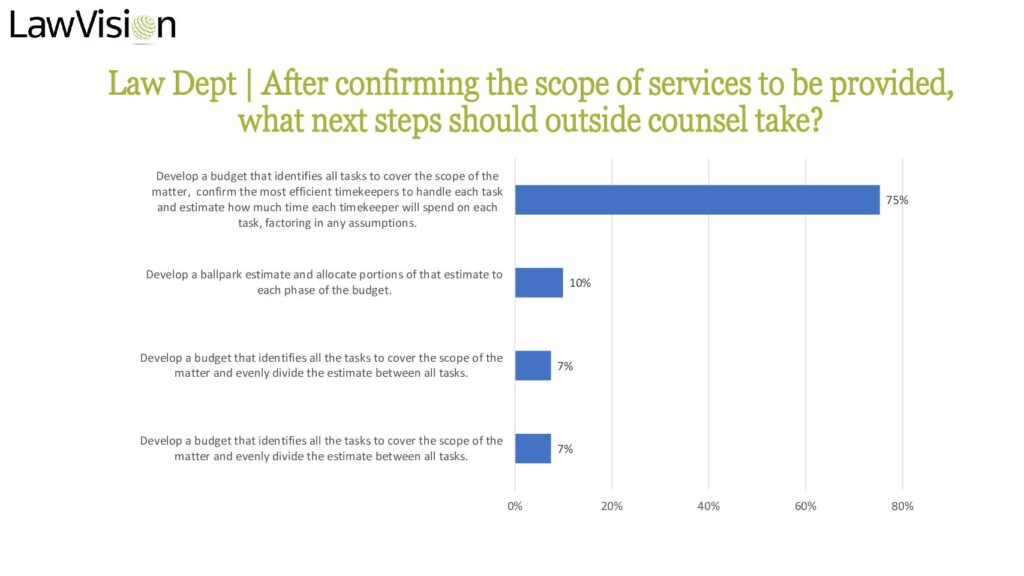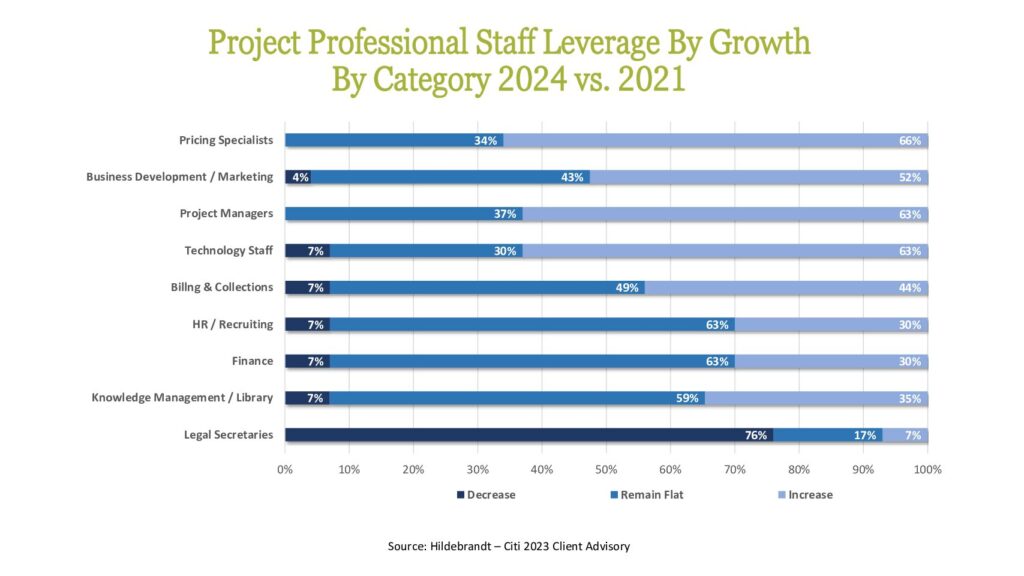In Midtown Manhattan, the temperatures soared to a spring-like 50 degrees when nearly 400 people attended this year’s Practising Law Institute (PLI) on Project Management for Lawyers on February 8, 2023. For the second time, the in-house lawyers from corporate law departments outpaced the private practice attendees. There were over 600 people registered, and PLI records typically show that more than twice the number registered will watch the on-demand session later. Given all of the changes in the legal industry, perhaps the unseasonably warm weather signaled a new beginning, a do-over, or at least a chance to revitalize project management initiatives worldwide. Participants left with plenty to think about.
I was honored to co-chair this event for the 13th year. This year, John Burke, Global Head of Outside Counsel Management for UBS AG co-chaired the event. He delivered an outstanding presentation about the UBS Smart Sourcing framework. An essential aspect of the framework is that significant matters have a legal project manager assigned to them from their panel firms. For this innovative service model, UBS AG won the 2021 ACC Value Champion award.
In advance of the program, we typically prepare by examining changes in the legal market and the evolution of Legal Project Management (LPM). We also have the opportunity to further compare my impressions as the event unfolds. Following are some of the key trends affecting LPM today.
LPM is Not Only Here to Stay – it can be Billed for!
LPM is a relatively recent development in most legal organizations. After some 15 years, it is finally gaining real traction in the US. It’s not just the large firms that have come to the party. Increasingly more small and medium-sized firms have also joined the ranks. But consider the UK, for example, with its large global firms, many with over 3,000 lawyers. There, LPM has been a well-established, well-accepted function for many years that is heavily invested in by firms and has tremendous credibility with and buy-in from lawyers. But it’s not just accepted by lawyers, clients, too, embrace the approach. In fact, LPM is often chargeable to clients, just like a lawyer’s or paralegal’s time.
Last year, when Aaran Scott from Clifford Chance spoke for the PLI program, he shared that his firm has over 50 dedicated legal project managers across their 3,000-lawyer firm. This year, Chris Brocklehurst from Herbert Smith Freehills (also about 3,000 lawyers) and Ciaran Heaney from Baker McKenzie (5,000 lawyers plus) shared their firms’ experiences. They have between 40 and 70 legal project managers, respectively, along with many other legal operations professionals whose work complements the LPMs. Each of these firms can charge for their legal project managers’ time spent on client matters where they are truly doing LPM work and adding value.
This year, co-chair Burke shared his perspective on how valuable legal project managers are for his financial institution’s significant matters. They expect to have trained legal project managers dedicated to major matters of high value, complexity, or risk. Moreover, they are willing to pay for them. In addition, he reported that if a law firm comes to him and can justify why a legal project manager is needed on a matter and how they add value, they would pay for those as well. Now that’s progress for LPM.
Some US and UK law firms that charge for LPM distinguish between the type of work legal project managers perform. On the one hand, legal project managers help law firms reduce write-downs and write-offs or otherwise run the law firm business more efficiently – thereby benefiting the law firm primarily. On the other hand, they help the client reduce their fees, accomplish their efficiency objectives, manage to budget, etc. Many do not charge for the former law firm-centered activities that they rightly believe help the firm and aren’t of particular value to clients.
However, a growing number of US firms are now charging for legal project manager time that adds value to the client, i.e., helps to reduce their fees. This is particularly true when the work they do would have been handled previously by a higher-cost resource such as an associate or partner. But even if you can’t bill for your legal project managers, many firms have proven empirically that matters using LPM approaches are more profitable than those that do not.
Client Demands and Sophistication about LPM Are Growing
“LPM is table stakes,” declared my law department co-chairs for the last eight years. And that was true. Perhaps in the past, a whiff of LPM would suffice. Table stakes are, after all, just the minimum level acceptable to compete. Today, however, clients are calling on law firms to do more than give lip service to an LPM offering.
This year’s PLI audience poll shows an increased level of sophistication and expectations about the use of LPM on client matters. We asked a series of questions to law department attendees about their expectations for LPM utilization by outside counsel. The second two responses were part of a case study asking how in-house counsel prefer to have their matters managed.



Increasingly, as clients understand what legal project management is and how it benefits matter management, companies will expect law firms to demonstrate the value promised. This moves beyond table stakes to an authentic and robust investment in LPM capabilities and roles.
LPM is Critical in the War for Talent and Hybrid Work Environment
In this current talent war, it is essential to keep talent engaged and productive. Here are just some of the ways LPM can help with professional engagement in a law firm:
- LPM supports organic collaboration. That is, teams will naturally work better together, contributing to a more cohesive culture and greater engagement of talent. This happens by design — kick-off meetings, ongoing team communication, scoping processes, enhanced communication, delineating key tasks, roles, responsibilities, and more.
- Junior team members can understand a project’s big picture through the scoping process and documentation. They get to see the road map of the work ahead and how their contribution fits into the work breakdown structure or playbook. Moreover, the entire team gets regular updates through team meetings or collaboration portals.
Special Challenges in Hybrid Environments
In a recent blog, we identified at least three major hybrid work challenges. They include
- Teamwork and cohesion
- Effective communication
- Development of junior professionals
In addition to the engagement benefits mentioned above, LPM can help overcome some of these challenges of hybrid work. Following are just a few examples of how the communication and documentation that occurs through LPM can help.
- Associates experience better professional development as part of well-managed teams with good communication.
- Junior team members can see how their contribution fits into the large plan for the work, as mentioned, and what their roles and responsibilities are vis-à-vis other members of the matter team.
- Responsibilities are clearly delineated through LACI or RACI charts so team members know who can answer their questions.
Clearly, without adaptation, the traditional apprenticeship model may struggle in a hybrid work environment. LPM can help lawyer development where apprenticeship is lacking. This may occur through more regular team meetings, communication of tasks and expectations, and documentation of upcoming work. A disciplined approach to LPM can fill many of the gaps created by the current lack of random office encounters with fewer people in the office. Duplication of effort, siloed work efforts, and unnecessary fire drills decrease, while teamwork and trusted relationships increase. Work is less frustrating and intrinsically more fulfilling.
We see this as a key time for legal project managers and LPM. Increasingly, clients request that firms use LPM on their matters to provide greater transparency and keep legal spend in check. Law firms that expect to prosper in the evolving marketplace will look to use LPM to exceed client expectations.
The Year Ahead
In June 2021, I chaired the Global LPM Summit. It was the first global conference on this topic, with over 75 speakers from a dozen countries. As mentioned above, it was clear that many UK firms no longer had to push for lawyer buy-in. LPM is widely accepted in their organizations. This year’s PLI conference confirmed the continued growth of LPM functions among firms and clients alike.
As we shared last year:
- The use of LPM is widely accepted in many organizations around the globe; and
- Many law departments expect LPM approaches to be used on their matters.
In law firms with high adoption of LPM, legal project managers are seen as highly valued professionals. They help the matter teams run effectively and meet client expectations. Many legal project managers are also client-facing, helping the leaders of matter teams ensure that they are meeting and exceeding client expectations. Further, they help navigate issues ranging from changing the staffing on a matter, setting up a client-facing dashboard, driving efficiency and profitability, complying with outside counsel guidelines, discussing scope changes and the impact on the budget, and more.
The success of LPM approaches and legal project managers has driven exponential demand for these roles. That’s because legal organizations realize the positive impact legal project managers have on the bottom line. For law departments, they help reduce legal spend, enhance communication, and minimize pain points. In law firms, they help improve profitability and strengthen client relationships. There are many opportunities for those interested in pursuing a career change or using their current experience as a business professional to expand into LPM. The recent Hildebrandt Citi Law Firm Advisory, published in December, projected significant hiring in this area.

On the Horizon
We are also very excited about the 2023 Global LPM Summit. This year, it will be offered in conjunction with a new exciting conference called Running Legal Like a Business. An unlimited number can attend the virtual LPM sessions in October. There will also be an invitation-only group of law firm leaders attending along with hundreds of general counsel and legal operations professionals in Las Vegas from October 15 – 18. There, leaders of law firm LPM, innovation, value, and other functions will interact with legal operations heads, general counsel, and others seeking to share best practices about “running legal like a business.” The LPM sessions, both live and virtual, will share more successes on this journey to have LPM be core to the functioning of every successful law firm and legal department.
Posted In


